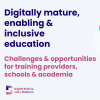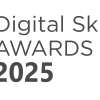Kids Centric Universe - Spain
Background and context
The KIDS CENTRIC universe aims to bring digital education into schools in the Community of Madrid to manage the risks of digital addiction among students, improve school coexistence and create a culture of cybersecurity in the educational environment, at school and at home.
The initiative is designed with technology that helps teachers develop students' digital skills by promoting healthy habits and taking care of their digital well-being.
This project implements the first integral digital literacy program (student-teacher-families) based on the platform, which makes it possible to greatly increase the digital literacy of children and adolescents, generating a high social impact in a very short time.
Sharing and gaining information
Teachers can use videogames and AI in the classroom to obtain information about technology usage and how students relate to it, to identify the risks to which they are most exposed, and generate the teaching material needed to mitigate them. The teaching unit is customized and comprehensive (in online video format and gamified activities), because it reaches teachers, students, and families.
The automation of the previous assessment method (video games) and the process of generating the teaching material most adapted to each classroom enable teachers to be very effective in their tasks, identifying and mitigating the specific risks that apply to each group of students based on their digital activity and relationships (classroom sociogram).
The power of the platform lies in its ability to be deployed on widely, perform diagnosis of easily configurable ‘themes’, and automatically create a teaching unit based on the results. These two skills can be applied in any sector and type of organization to carry out effective and personalized trainings, depending on the profile and knowledge of the student.
Why is this a good practice?
With the information it collects, Kids Centric Universe measures its impact in terms of coexistence (level of wellbeing, coexistence, conflict) generates the classroom sociogram, and enables schools to monitor the improvement achieved as well as identify excluded students, conflicts and cases of bullying/cyberbullying.
Among the improvements in the participant centres, it was observed that the level of student wellbeing increased by 15%, conflict in the educational environment reduced by 14%, equality improved by 18% and coexistence in the educational environment improved by 16%.
UNESCO recommended Kids Centric Universe as a good educational practice in its May 2024 GEM 2024 report. The project has also generated impact in 30 educational centres in the Community of Madrid, for more than 1,000 teachers and more than 8,000 families.
With the information collected from the classrooms, the Gaptain platform prepared a study: Educación digital y Convivencia escolar 2024.





